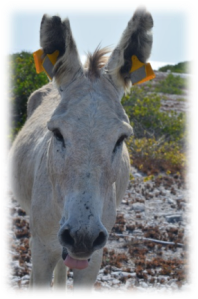We did exactly what you are talking about ~5 years ago and for much the same reason.
First .. to correct an earlier comment, you are not likely interested in becoming a (Dutch) citizen but rather a Bonairian resident, the two are not the same. If you are a US citizen, obtaining local residency is not difficult but like everything on island it takes time and the rules/policies/process changes. There are some locals who, for a modest price, will work with you through the entire process.
Regarding buying real estate, the market for used homes as well as lots has exploded in recent years as it has done around the world. While you can find properties in your price range, a lot will depend on what your “must haves” are. Regardless I’d suggest watching EVERY real estate FB and Web page and keeping your own list of properties, lots, etc for when you get serious. Then find a realtor who will show you those properties, even if not their listings. Do NOT expect all local real estate agents to show you someone else’s listing on their own accord.
finally, regarding extended stays before making the decision, while it is good advice, this also depends on you and those joining you. We did not, after 2 short stays, we bought our forever home, sold our US home, and haven't looked back once.
feel free to DM me if you’d like any other thoughts.






